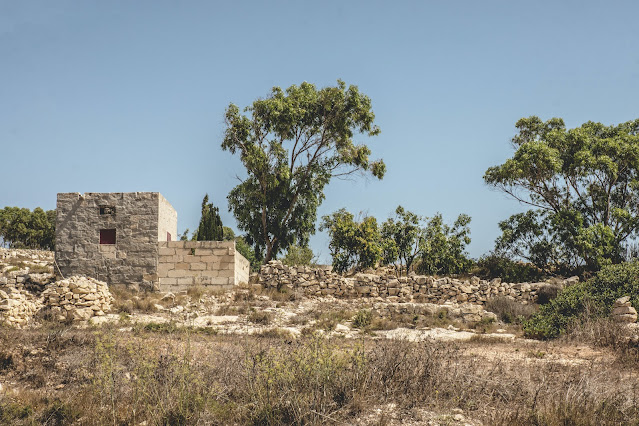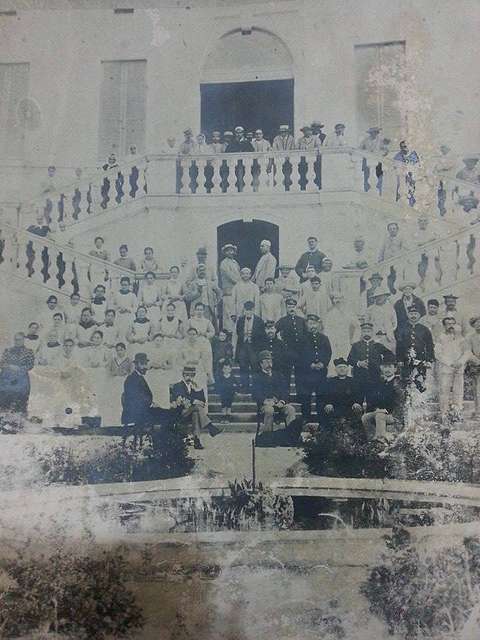Hello everyone! Welcome to True Crime Tales with Cosette!
Today I will recount a true crime tale from Malta. I chose a peculiar murder that happened in 1934 as the subject for my first story. So sit back, while I tell you the chilling tale of how poor Rozi Camilleri lost her life.
Rozi Camilleri was a young married woman, who was murdered by an older woman named Pawla Camilleri. The reason why the two shared their last name is that they were related by marriage. In fact, Pawla was Rozi's mother-in-law. Or should I say monster-in-law?
Women may commit murder for various reasons, but in this case, the motive was very unusual. Why did a woman come to kill her son's wife? People attested that these two women had disagreements, but was the real motive more sinister? The stereotype of the overbearing mother-in-law, who is highly critical and demanding, seemed to fit Pawla to a tee. Did the mother's jealousy of her son's wife lead to this tragedy, unique in Malta's criminal history?
Karmnu Camilleri had been married for nine months to a 24-year-old woman, named Rozi. Karmnu was a young man from Rabat, who, once he got married, went to live not far from his mother's house, in Triq Misrah Suffara (Whistle Square Road), where he left some goats.
Karmnu made his living selling milk early in the morning. Being the diligent man he was, six months into his marriage, he felt it would be better to work in the field or in construction. To continue earning some extra money, Rozi started selling the milk herself.
On the 18th of July 1934, Karmnu was working in a field which belonged to his wife's relatives. At around 11.30 a.m. - the time when his wife used to bring him lunch - he headed to Rozi's mother's farm and told her he was going to the house because his wife did not show up.
As he approached the house, Karmnu met two women who told him it would be better to go and get his wife away from his mother because "she was going to kill her". After this, Karmnu rushed home to go see what was going on.
When he arrived at his mother's house, Karmnu called his wife, and when he saw that there was no answer, he kept going to the room where they kept the animals. Afterwards, he went to the animal pen, where he found his wife dead. It was later established that Rozi died of suffocation when her head was immersed in manure.
From there, Karmnu went straight to the local police station where he told the police that his mother had killed his wife. The police went to the crime scene and questioned Pawla. But when she was asked by the police what happened in the animal pen, Pawla denied that she had argued with Rozi and said that on that day, she didn't feel well and spent a lot of time in bed.
From the investigation carried out by the police, it became known that on the day of the crime, at around 10.00 a.m., some neighbours heard Rozi screaming in pain. They also overheard a bucket falling to the ground. That's when some people went to knock on Pawla's door, but no one answered. There was also a boy, who climbed up on the roof to look into Pawla's yard. The relatives of the deceased, as well as her husband, stated that Pawla was always having issues with Rozi. And that Karmnu would tell his wife that if his mother were to assault her, she had to defend herself by all means possible.
Apart from this, Karmnu and Rozi repeatedly complained that Pawla used to steal their goat's milk and animal feed. Although Pawla kept denying that she was involved in this crime in any way, everything pointed to the contrary. Among the evidence were the scratches that Pawla had on her face, which she said were done with a comb while she was combing her hair.
With this evidence, the police charged Pawla with the murder. The trial began on the 23rd of October 1934. Pawla Camilleri had the best defence lawyers she could have, Carmelo Mifsud Bonnici and Joseph Flores. The Prosecutor for the case was Joseph Reynaud.
Among the prosecution's witnesses were the doctors who performed the autopsy, who stated that the victim had 21 scratches and other wounds. The doctors said that these were caused during a struggle. Amongst these were several witnesses who had heard the victim's screams and noise at the time of the murder.
Despite this evidence, the verdict was not unanimous. Pawla was found guilty with a verdict of eight against one. After this verdict, the Court condemned Pawla Camilleri to life in prison.
A year after this conviction, Guzeppi Camilleri, Pawla's husband, was approached by a certain Filippu Psaila, who hinted that if he paid some money, Pawla would receive a pardon. Guzeppi accepted this proposal. Psaila introduced him to Carmelo Fenech, who worked at the Governor's Palace. But after the first meeting between Fenech and Camilleri, the latter was asked to deposit a payment of two hundred pounds in the Malta Government Savings Bank. Later, the three men involved in this matter went to Tunis, where they had to meet the British consul. There Guzeppi was led to believe that upon his return to Malta, his wife would be released. But this pardon did not happen, and Guzeppi was asked to pay another two hundred pounds. Later, Karmnu Camilleri - Pawla's son and the victim's husband - was also approached. However, he was warned not to speak about this pardon, not even with his father.
Karmnu promised to do this while paying another sum of money. In total, Karmnu and his father had paid eight hundred pounds for Pawla's freedom. But soon after, Psaila and Fenech fled the country, and it became clear that this was just a scam.
The tragedy did not end there. Some years after the conviction, Pawla fell ill. After a long time in the hospital, she was taken to the poor house (present-day St Vincent de Paul), where it can be said that she was forgotten. The 18th of June 1948 issue of The Bulletin referenced this woman who was still considered a prisoner. The same newspaper also mentioned that her son Karmnu had died, and her other son was fighting for her release.
Present-day Saint Vincent de Paul Long-Term Care Facility
And that's the end of the first of many True Crime Tales with Cosette. The main source of information for this case is Edward Attard's book Delitti f' Malta.
Are you a fan of true crime? Have you ever heard of a similar case before? Leave a comment and let me know!
Talk to you soon.




